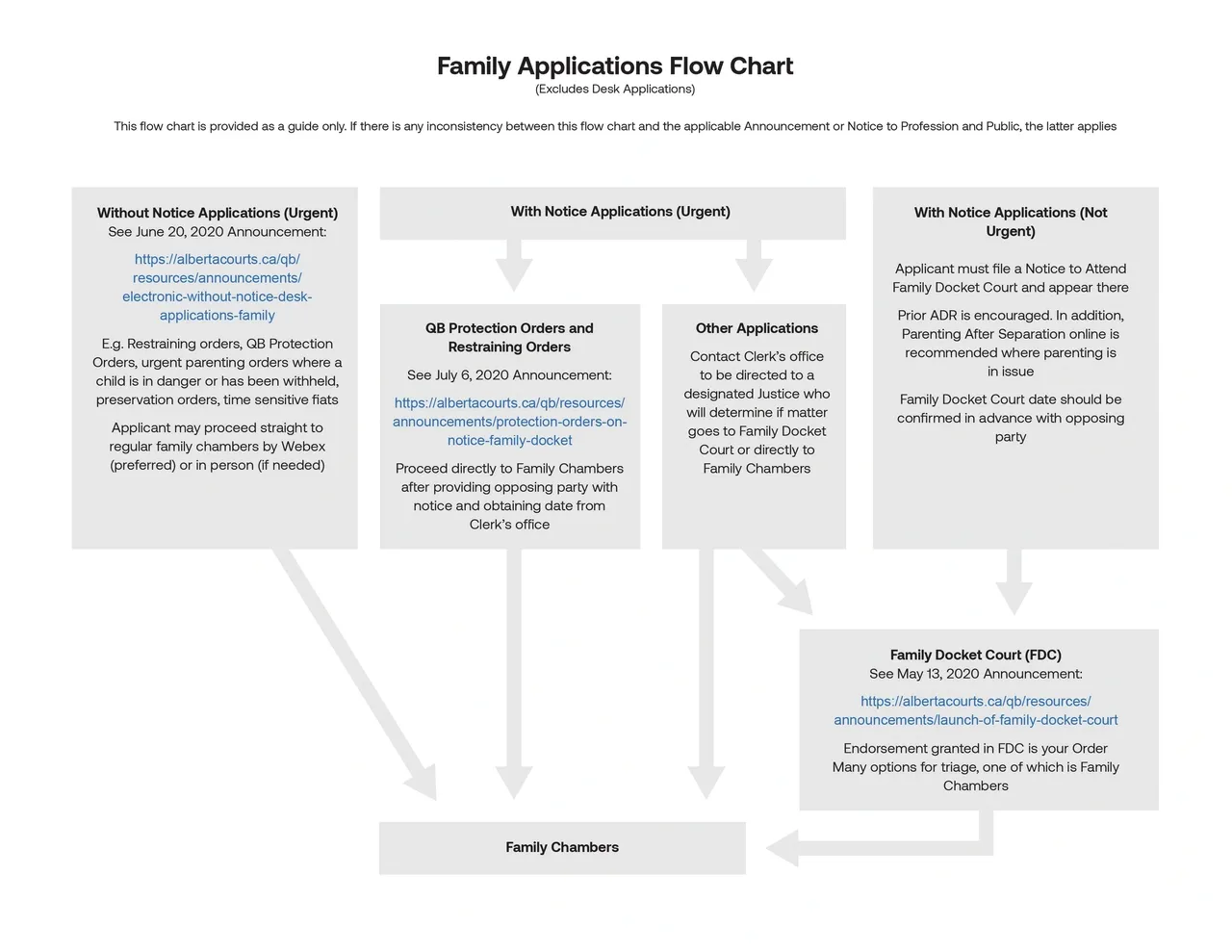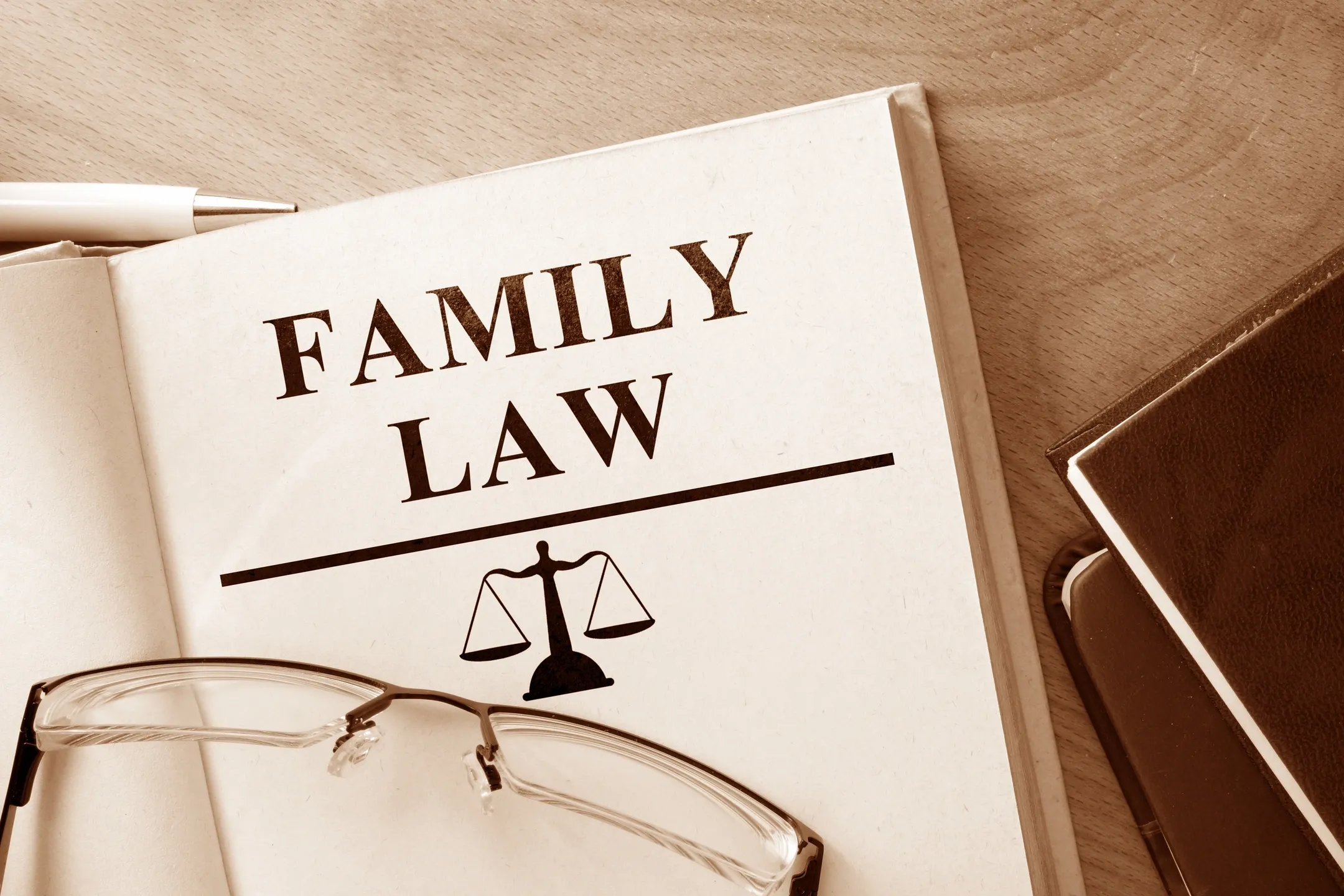The area of law that governs family relationships, such as marriage and divorce, child custody, and financial problems, is known as family law.
Also, family law issues frequently interact with other areas of the law, such as criminal law. Domestic violence, for example, can result in criminal charges if a family member physically assaults another family member. Simultaneously, it may also result in the involvement of child welfare services (see child services page)
In conclusion, family law deals with a very private aspect of people’s lives, making it an extremely emotive branch of the legal system.
If a family law situation has disrupted and overwhelmed your life, we hope that this information will assist you in navigating the legal system.
Where do I file my family law application?
Family matters are handled by two levels of the court, that is the Provincial Court of Alberta and the Court of Queen’s Bench of Alberta
What is the difference between the Provincial Court and Federal Court?
Provincial Court: The Provincial Court hears the majority of family law disputes, including parenting, guardianship, child support, and child welfare. However, on the other hand, the provincial court does not have authority over divorce and property partition matters.
Note: The decision-makers at the Provincial Court are called “Judges” and should be as addressed in the court as “Your Honour”
For address of the closest provincial court see: https://albertacourts.ca/pc/court-practice-and-schedules/Contact
There is “Information for Self-Represented Litigants In Provincial Court Family” guide that the Provincial Court in Alberta has put together for individuals
involved in family proceedings who are not represented by a lawyer. This guide can be found here.
The Court of Queen’s Bench is the superior Court in Alberta. It has exclusive jurisdiction over matters such as Emergency Protection Orders (EPOs), divorce, and division of matrimonial property.
Note: The decision-makers at the Court of Queen’s Bench are called “Justices” and must be referred to in the court as:
For Male Justices: My Lord, Your Lordship or Mister Justice or Sir
For Female Justices: My Lady, Your Ladyship or Madam Justice or Madam
For family law applications process see chart below:

Source: Family Application Flow Chart, Adapted from “Court of Queen’s Bench of Alberta”, Retrieved August 8, 2021, from: https://www.albertacourts.ca/docs/default-source/qb/family-applications-flow-chart.pdf. Copyright 2020.
What are common family law practice areas?
The practice of family law primarily focuses on the following areas:
1) Separation or Divorce
2) Child Support
3) Spousal Support/Alimony
4) Marital Agreements, such pre-nuptial and post-nuptial agreements
5) Child Custody (also known as Child Parenting), Child guardianship, and Child Visitation
6) Family Violence
7) Child Welfare Services
8) Family Assets and Matrimonial Property Division
Check details of respective areas here.
What are laws apply to common law relationship vs. married couples?
Definition
Common Law Couples: Couples who are living together in a relationship of some permanence, but are not married.
Married Couples: Couples who are legally married in accordance with their governing jurisdiction.
Other Names
Common Law Couples: Common law relationship is also known as, adult interdependent relationship, cohabitation, common law partners, etc.
Married Couples: No other names.
Separation
Common Law Couples: When parties separate it is known as separation or breakdown of a relationship.
Married Couples: When married couples separate, it is known as separation or breakdown of marital relationship. When couples are officially separated it is known as divorce.
Child Support
Children of common law relationship and marriage are treated similarly for the purposes of child support.
Parenting and Access (formerly known as Custody and Access)
Children of common law relationship and marriage are treated similarly for the purposes of parenting and access.
Spousal Support (also known as Alimony)
Common Law Couples: Based on the Family Law Act and common law principles:
– Firstly, the relationship of permanence has to be established.
– Secondly, it is based on needs and compensatory basis
– Thirdly, several other factors are considered by the court, such as length of the relationship, unjust enrichment by a spouse, constructive trust, etc.
Married Couples: Based on the Divorce Act and common law principles:
– The relationship of permanence does not have to be established.
– Secondly, it is based on needs and compensatory basis.
– Thirdly, several other factors are also considered, such as length of the marriage, unjust enrichment, means, needs, etc.
Asset Division
Common Law Couples:
– Before January 1, 2020: If you were in a common law relationship and separated before January 1, 2020, then the laws of unjust enrichment apply to
you. You must consult with a lawyer for assets division.
– After January 1, 2020: The Family Property Act governs the division of property.
Married Couples:
– Before January 1, 2020: The Matrimonial Property Act governs how matrimonial assets will be divided.
– After January 1, 2020: The Family Property Act governs the division of property.
Family Violence
The Protection Against Family Violence Act primarily governs the issues of domestic violence.




